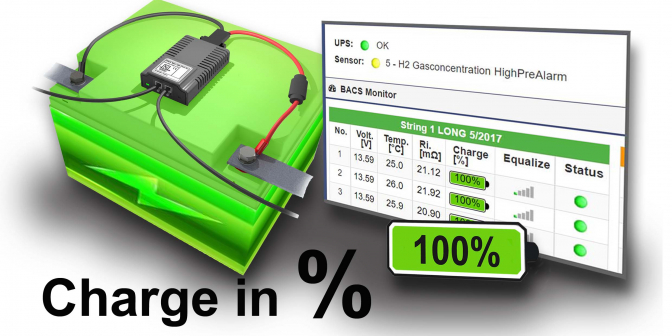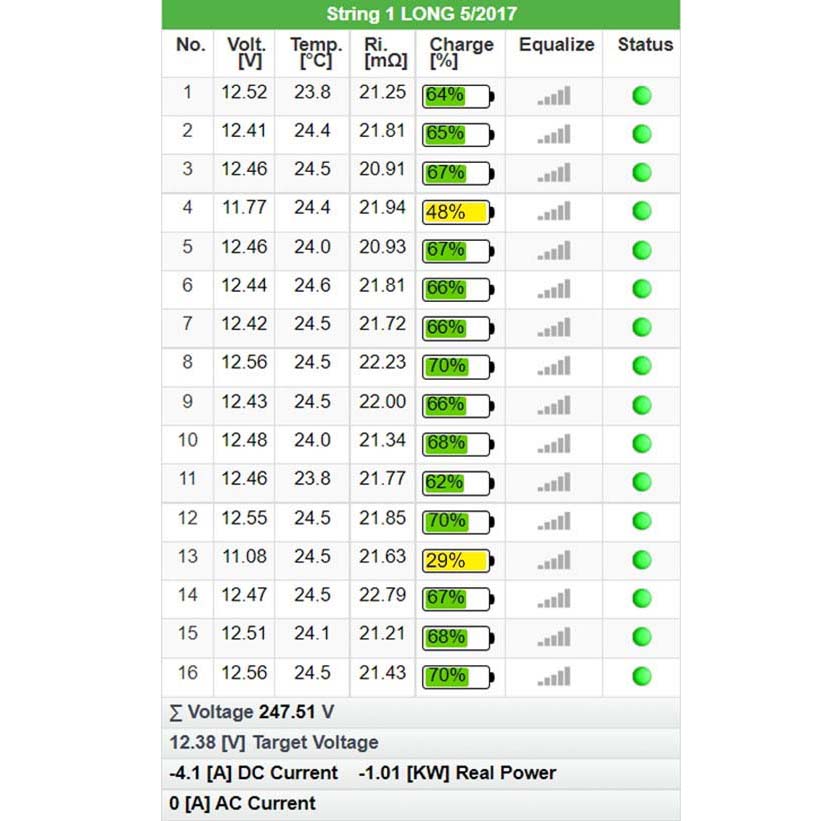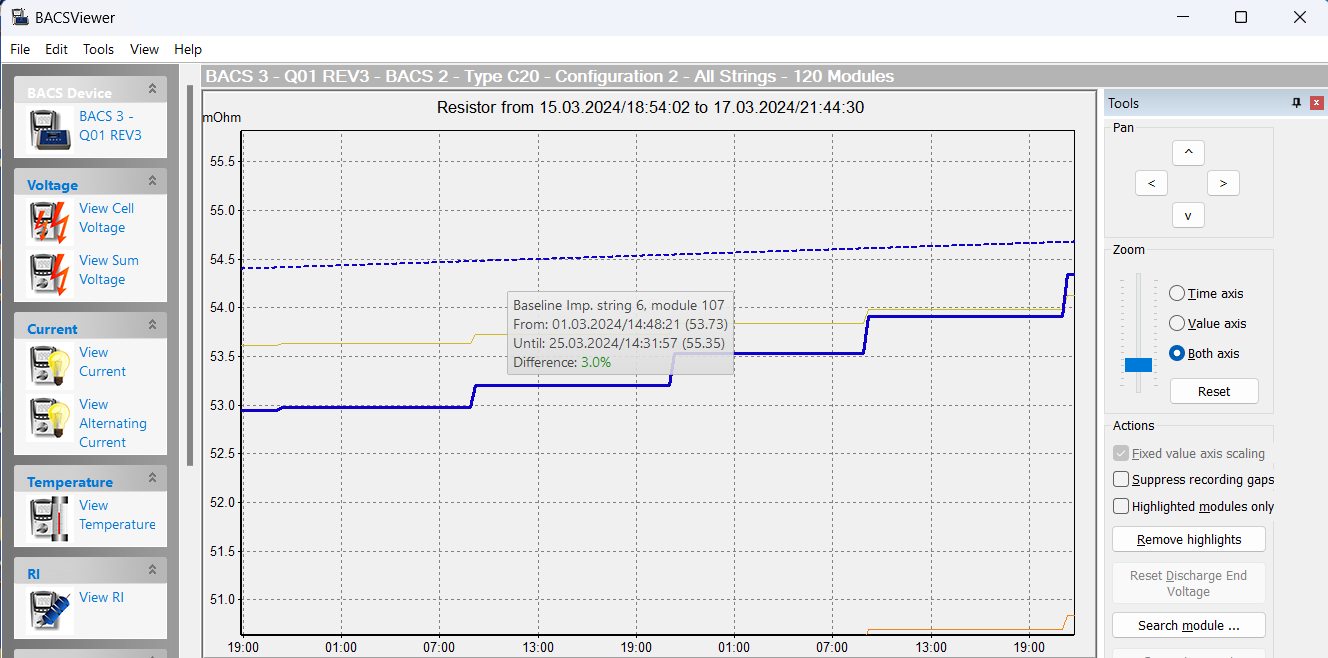When BACS came onto the market 20 years ago, it quickly attracted great interest from customers with highly critical infrastructures. Within a decade, BACS developed into a key technology for stationary batteries in particularly critical areas and is now advertised by many international corporations as an “unofficial” standard for their systems. BACS has adapted significantly to the requirements of these highly critical customers and is now the undisputed market leader in the EU and number 2 in the USA in this sensitive market segment.
BACS has active battery management with a balancing function, a technology that must be used in lithium battery technology today to keep these cells stable. With the introduction of this technology on lead- and NiCd-based cells, similar positive effects were also observed after a few years. Balancing (or “equalizing”) also ensures the stability of lead/acid, NiCd and other types of chemistry whose cells are connected in series to generate high voltages. Just like with lithium-based cells, BACS ensures the “health” of the cells - SOH (State-of-Health) and determines the charge level SOC (State-of-Charge).
For our customers experienced in lithium technology: SOP (State of Power) is not measured by BACS. This value is only important for lithium cells because of their special susceptibility to damage in deep discharge and overload situations. Lead and NiCd batteries do not suffer any permanent damage from these situations if they are only used for a short time. In addition, the use of lead and NiCds is typically focused on emergency power situations so that these areas that are dangerous for lithium are never reached anyway.
The interpretation of the measured values of a battery system is significantly improved by balancing, and it is also a critical qualifier for any measurement having to do with impedance: Balancing keeps all cells/batteries closely within the “healthy” voltage window and thus allows a highly precise impedance measurement. Other BMS systems can also carry out impedance measurements without balancing - BUT: Without balancing, impedance measurements from other BMS systems cannot be compared because different voltages were measured per block/cell!
With BACS, the impedances are always measured at exactly the same voltage - and are therefore comparable for the first time! A battery with different impedance now clearly stands out from the crowd of others and clearly shows the user where the problem lies.







